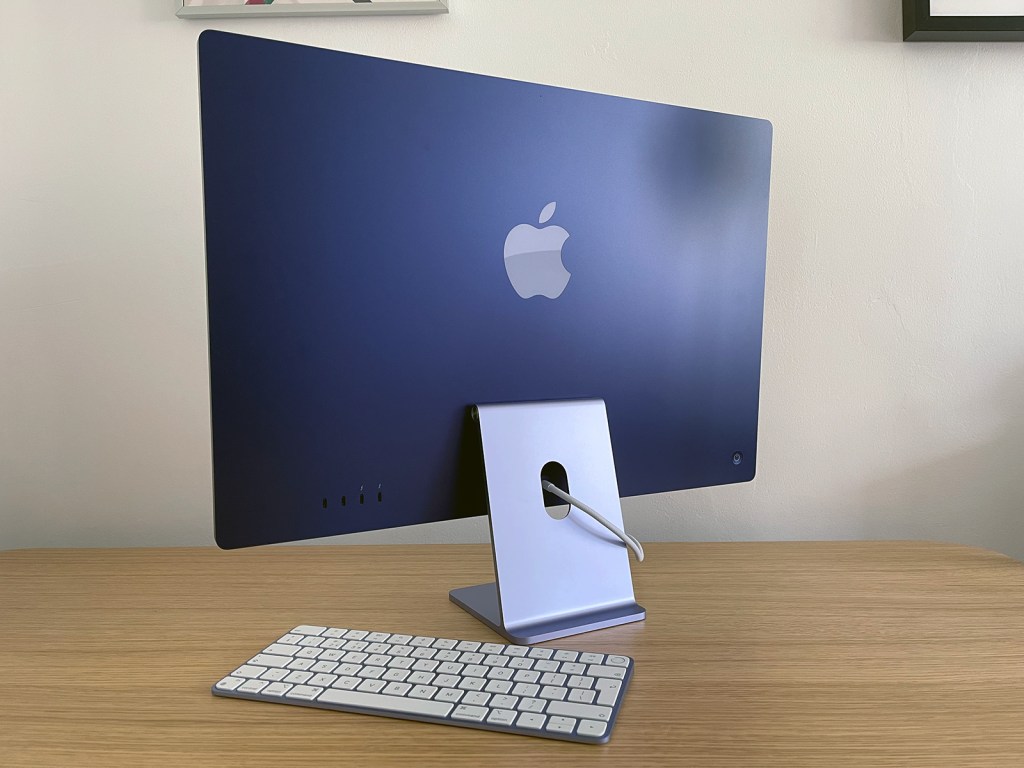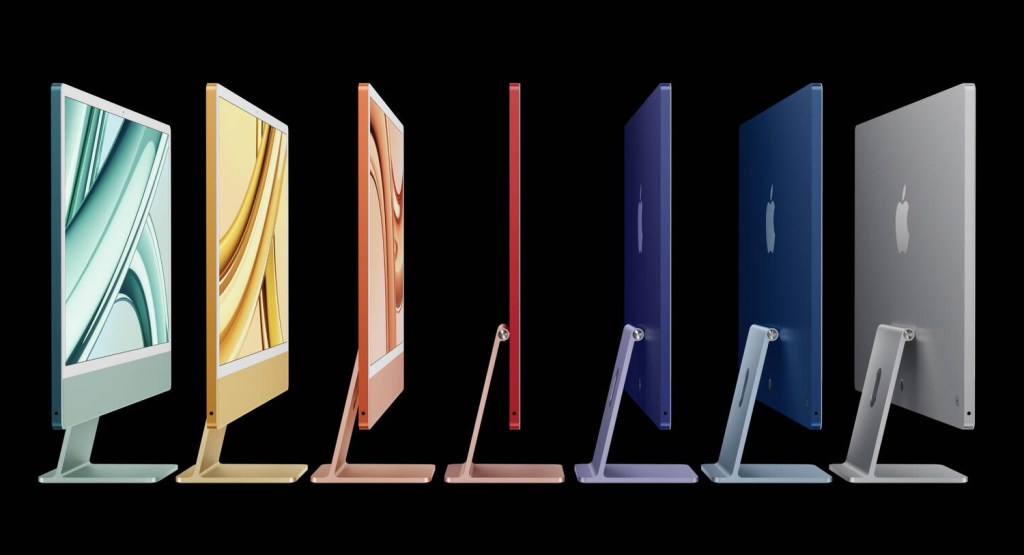Apple iMac M3 vs iMac M1: the two desktops, compared
Apple has unveiled a new iMac upgrade.

Apple has unveiled a new iMac upgrade. Already one of the most popular desktops out there, the iMac M3 is a machine that is prioritising speed and power.
But when it comes to the iMac M3 vs iMac M1, which should you be spending your money on? The iMac M1 hasn’t been made redundant by its newly upgraded sibling, but given their similar price points, the M3 offers some speed upgrades that are worth knowing more about.
Design: classic Apple


If you were to compare both the iMac M3 and M1 side by side, you’d be forgiven for not really finding too many differences there. That’s because, well, there aren’t too many.
The newer, upgraded M3 is just 11.5mm thin, and comes in seven colours. We have the classic Apple silver, as well as green, yellow, orange, pink, purple and blue. When it comes to colour scheme, there’s no change between the iMac M3 vs iMac M1. Both models share the same seven hues, and both are 11.5mm thick.
Screen & audio: much of the same

The 24in 4.5K retina display in the 2023 iMac is the same found in the 2021 model. Both models also have a resolution of 4480×2520, and a 500 nit brightness. This should be bright enough to see the screen in direct sunlight, but some may be disappointed that the display hasn’t been upgraded for the M3. As the desktop Mac has become the go-to machine for creatives, a pixel upgrade would have been a bonus, but we’ll just have to wait for a future model to see any upgrades there.
The M3 model also has six on-board speakers, a 1080p webcam, and Touch ID via the colour-matched Magic Keyboard.
The iMac M1 also holds a six-speaker system, and can produce a wide stereo sound with support for spatial audio when playing music or video with Dolby Atmos.
Speed: M3-azing

The M3 is supposedly twice as fast as the M1, says Apple. This allows for improved mesh shading, and speedier games rendering. Apps deliver up to 2.5x fast rendering than the M1 chips, while the CPUs are around 15% faster than M2, and around 30% faster than M1. There’s yet more upgrades under the hood. The new machine comes with Wi-Fi 6E, Bluetooth 5.3, up to 24GB of unified memory and up to 2TB of storage.
The speed boost should be good news to those who need an iMac for power reliant tasks. According to Apple, the new chip allows for 4K video in up to 12 streams. Adobe Photoshop should also work more fluidly.
It goes without saying that on first impressions, the M3 trumps the M1 on speed and performance. That’s not to say the M1 is redundant, though. The M1 has 8-core CPU just like the M3, however it has a 7-core GPU and a unified memory of up to 16GB, down from 24GB in the M3.
The new iMac also comes with macOS Sonoma built-in, bringing with it all the upgrades of macOS 14. Thanks to Sonoma, desktop widgets have been improved, we get some Safari extras, and predictive text has been given a polish.
Price

The base model of the M3 starts at $1299/£1399, the same as the M1 costed on its release. This basic model gets you the 8-core M3 processor, 8GB of memory, and a 256GB SSD. If you’re already spending upwards of $1299/£1399 on a desktop computer anyway, the M3 provides a good deal compared to the M1. For the same price upon launch, the M3 bags you a much faster computer for your money.
Verdict
Until we’re able to test out the iMac M3 first-hand, it’s hard to know how these upgrades handle day-to-day tasks. On first impressions, the upgraded chip should provide a much faster operating experience. However, if you already own a 2021 iMac M1, what Apple is offering may not be enough to convince you that an upgrade is in your best interest.
The 24in, 4.5K retina display can handle creative tasks with ease, but we hoped to see a greater resolution or increased nits in the iMac M3.


